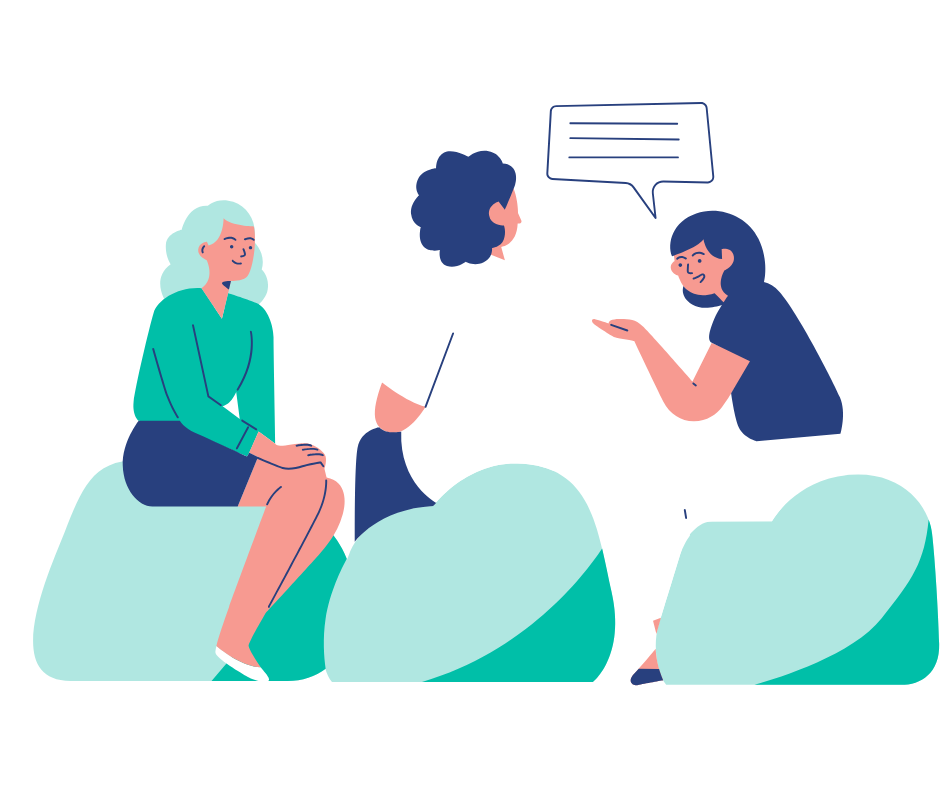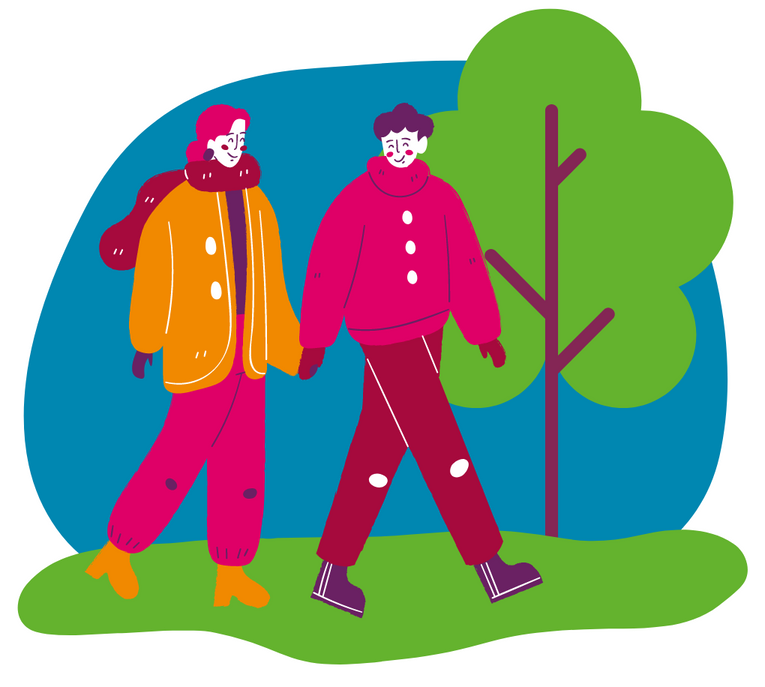Talking, dating, boundaries, and finding your people

When you’re living with cardiomyopathy, relationships can feel a bit more complicated – whether it’s with your family, your friends, or someone you’re dating. You might wonder how much to share, when to talk about it, or worry that people won’t understand. That’s completely normal.
You’re not alone in feeling this way – and there’s no rulebook for how to do it. But there are some things that can help.
Talking about your condition

You don’t have to tell everyone everything. This is your story, and you get to decide how, when, and if you talk about your condition.
- Start with what matters most to you. That could be how cardiomyopathy affects your day-to-day, what kind of support you might need, or just helping people understand why you sometimes need to take things slower.
- You can keep it simple. Try saying something like:
- If someone asks questions, answer what you’re comfortable with. And it’s totally okay to say:
“I’ve got a heart condition called cardiomyopathy. It’s something I manage day to day, but it means I sometimes get tired easily or have to avoid certain activities.”
“I’m still figuring it out myself, to be honest.”
Remember: You don’t owe anyone a full explanation. The people who truly respect you will respect your boundaries too. Most of the time, people are just curious and don’t mean to be nosey or pushy — they might not even realise they’ve overstepped. It’s okay to let them know what you’re comfortable sharing and to keep some things just for yourself
Friendships and dating
You might worry about how people will react, or if they’ll treat you differently. That’s a really common worry.
But here’s the truth: supportive people won’t make you feel weird or less than.
- Trust builds with time. Once you feel safe and ready to open up, being honest can actually make your relationships stronger.
- You’re in control of what you share. You don’t have to tell anyone anything until you want to.
- If someone really cares about you, they’ll want to understand and support you – not disappear or act strange.
- It might feel a bit awkward at first, and that’s totally normal. Everyone’s figuring things out – take your time.
Your health is just one part of who you are. The stuff that makes you fun, kind, or interesting is what people see and care about
Dating?
- Image

You don’t have to bring up cardiomyopathy on the first date or in your first few messages. When you do feel ready to share, be honest but confident.
You could say something like:
“There’s something I manage day-to-day – I have a heart condition that affects my energy sometimes. It doesn’t define me, but I wanted you to know.”
The right person will listen, care, and want to learn.
Boundaries and energy limits
Having cardiomyopathy means you might have to say no sometimes – and that’s nothing to feel bad about.
- It’s okay to skip things like late nights, intense activities, or events when you need rest.
- You don’t have to apologise for looking after your health.
- Try using a line like:
“Sometimes I need to take a break or leave early – it’s just how I manage my energy. It’s not personal.”
Setting boundaries isn’t about being difficult – it’s about protecting your wellbeing. And the people who care about you will understand that.
Social media and your online world
Some people share loads about their health online. Others prefer to keep it private. You get to decide what’s right for you.
- You’re in control of what you post – and who sees it.
- It’s okay to block, mute, or unfollow people if their content makes you feel worse.
- Online communities can be brilliant for finding people who get it – but remember, no two cardiomyopathy journeys are the same.
Looking for a safe space to connect? Our Heart to Heart support service is designed just for you
Family, parents & support
Sometimes, even the people who love you most don’t totally get it – especially if your symptoms come and go, or aren’t always visible.
You might find your parents overprotective, or your siblings just don’t seem to get what you’re dealing with. That’s tough – but talking can help.
- Share little updates when you’re ready – like how you’re feeling, or what your next check-up is about.
- Let them know how they can help – whether that’s giving you space, offering a lift to an appointment, or just sitting with you on a tough day.
- You can even write it down if talking feels hard.
Need someone to talk to?
You don’t have to figure all this out on your own.
Our Heart to Heart service can connect you with someone around your age who’s also living with cardiomyopathy. They’ve been where you are. They get it. It’s a chance to talk things through with someone who really understands – no judgment, no pressure.
And if things feel confusing, heavy, or overwhelming, our Nurse Helpline is also here for you. They’ve supported loads of young people and can help you find ways to navigate tricky conversations or explain things in a way that feels right for you. Email: support@cardiomyopathy.org